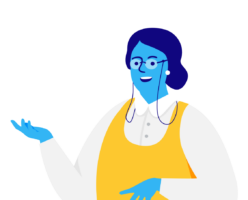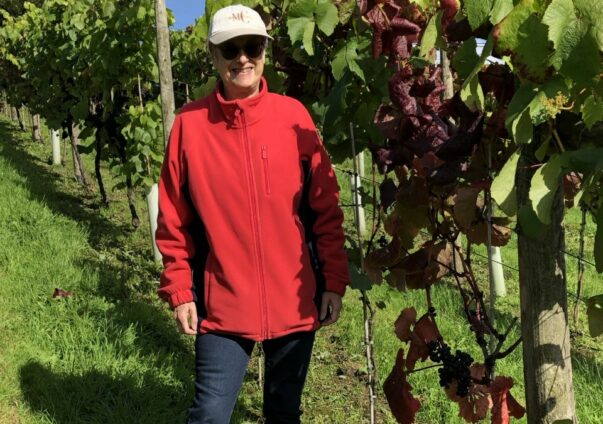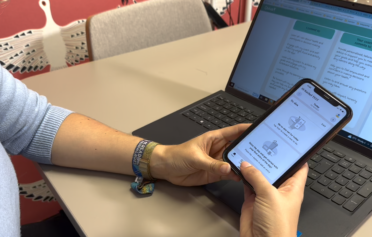
Case study: Diabetes Structured Education in Devon
Health inequalities in rural settings
It is widely accepted that easier access to diabetes education services is essential in order to enhance uptake of these essential prevention and support services, reduce the risk of diabetes related-complications and improve health outcomes.
However in rural settings with a low population density, it can be a challenge for those living with type 2 diabetes to access such opportunities in their local area. The term ‘rural’ covers a diverse population; and whilst rural areas are typically less deprived, financial poverty in rural areas is highly concentrated amongst older people.
How does Oviva help address health inequalities?
Our remote behaviour change programmes are proven to be effective in supporting people to lose weight, prevent diabetes and better manage their own health.
We provide flexibility and choice to personalise our offer to individual participants’ needs. By doing this, we remove many of the practical barriers to accessing services and therefore we achieve better uptake and engagement with groups who are often significantly under-represented in traditional face-to-face services. These groups can include:
- Working age people
- People from minority ethnic groups
- People from deprived communities
- Men
- People living with significant obesity who experience stigma
We utilise a remote first approach (digital, telephone or video), supported by our NHS Digital funded app or email/printed materials, and have experience in delivering hybrid models of care and triaging participants to the right intensity and mode of support for them.
Oviva Diabetes Support in Devon
In North and East Devon, between 15.7% – 18.4% of people offered face-to-face structured education attended in 2017/18 (PHE Fingertips data). Oviva was commissioned by Devon CCG to deliver a hybrid model of diabetes structured education, utilising a mixture of face-to-face and remote care with an older and more remote population.
The service aimed to support participants in how to self-manage their diabetes, including blood glucose and weight management, and to reduce future diabetes-related complications. The partnership also aimed to assess the retention and clinical effectiveness of such a service for adults living with type 2 diabetes when presented with a choice of delivery.
Oviva’s flexible delivery model enables us to address the needs of the local population, tailoring support to be highly accessible and personalised to encourage increased uptake from “hard-to-reach” groups. Due to Covid-19, our face-to-face pathway was stopped and we moved to remote care only (including groups and one-to-one support).
Oviva Diabetes Support programme pathway
Participants are guided through a core educational curriculum, supported by one-to-one or group personalised coaching in the form of frequent app coaching or phone calls over three stages of the 12 week programme. Participants receive personalised support to achieve meaningful and manageable changes to their diet and lifestyle, as well as a focus on improving blood glucose levels.

Start
A phone call or app contact with a diabetes specialist dietitian or health coach to explain the programme and set mutually agreed objectives.

Change
12 weeks of personalised support from a diabetes specialist dietitian or health coach (either 1:1 or groups) to achieve meaningful changes to the participant’s diet and lifestyle.

Sustain
Focusing on maintaining these new healthy behaviours for life, the patient will continue to have access to the Oviva app and learning resources.
Demographics of attendees
We know that nationally structured education for diabetes is less likely to be taken up by men, those of working age and those from ethnic minority communities.

55% male

56% of working age

4% from ethnic minority communities across both localities
Languages
Breakdown of additional languages provided to support access across both eastern and northern localities:
| Requested delivered language | Volume of patients |
| Polish | 37.5% |
| Bulgarian | 25% |
| Manbuman | 12.5% |
| Sinhala | 12.5% |
| Swahili | 12.5% |
These populations are often under-represented in standard face-to-face care models, reflecting the value of remote care for this demographic.
Programme outcomes
Impact in Eastern Devon
Impact in Northern Devon

My dietitian and health coach were supportive throughout. Seeing my progress has made me more motivated to be healthy. I’m really glad I had the opportunity to have an Oviva coach and app, and wouldn’t have become so much healthier without you.”
Fran, 58 years old from Devon, was referred onto the programme after she had been diagnosed with type 2 diabetes. Fran worked with her health coach to re-establish positive eating behaviours. She used Oviva Learn to further develop her knowledge and understanding of healthier foods. Her dietitian helped her with meals plans and provided her with recipe ideas.
With Oviva, Fran’s weight has reduced from 87kg to 64kg and she no longer needs diabetes medication.
Conclusion
The introduction of the programme widened access and dramatically improved uptake and engagement in underrepresented communities in both North and East Devon. By improving uptake of vital education and support services amongst all groups, the programme will enable more people to better manage their own diabetes, preventing complications and reducing inequalities in health outcomes.
A hybrid programme including remote digitally-enabled offering, such as Oviva Diabetes Support is clinically-effective, and can support overall diabetes risk reduction as seen in the weight loss figures and confidence scores. The improved engagement rates, including those typically under-represented at traditional face-to-face or group only based education, demonstrates that a programme such as Oviva Diabetes Support can achieve these significant improvements in uptake, outcomes and reduce inequalities at a significantly lower delivery cost for commissioners when compared to traditional standalone face-to-face education services.
For more information on our work in Devon, please read Dr Richard Paisley’s, an Honorary Consultant Physician at Torbay Hospital, paper in The British Medical Journal: Service user and community clinician design of a partially virtual diabetic service improves access to care and education and reduces amputation incidence.





